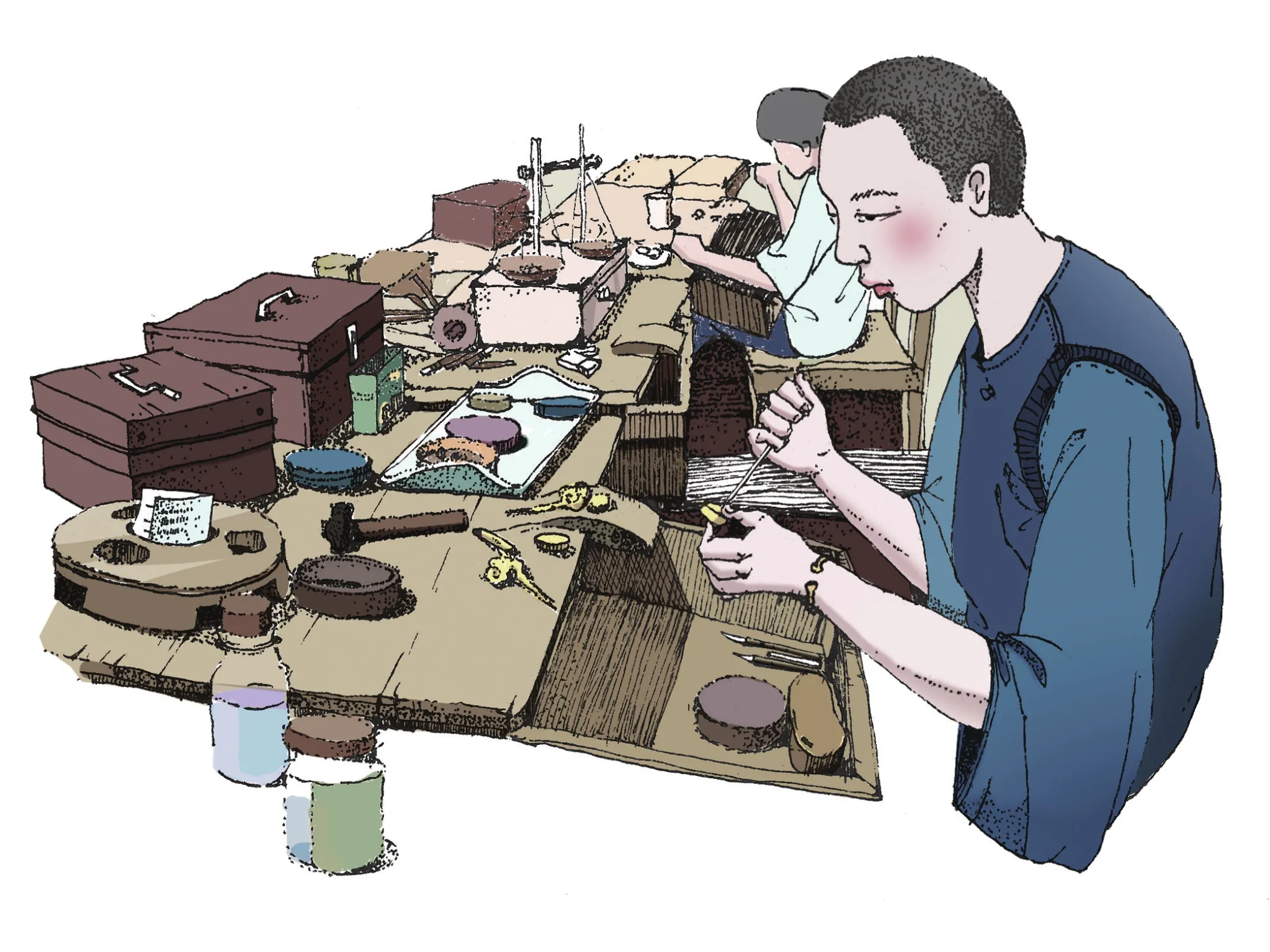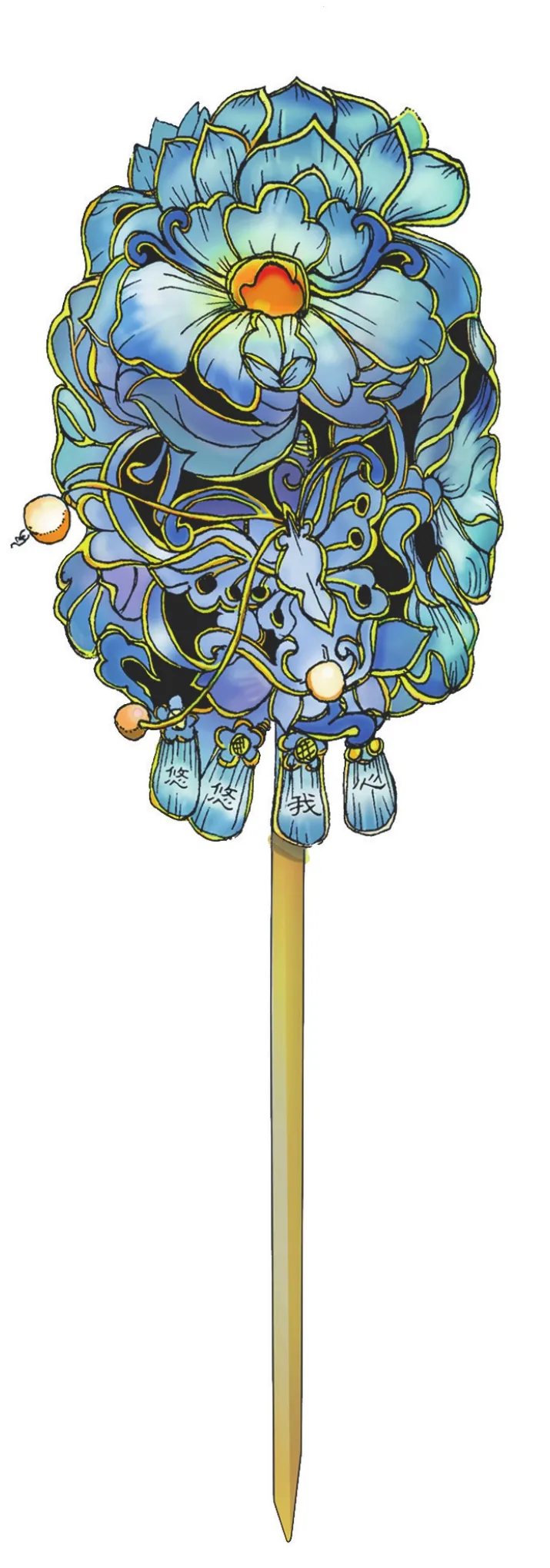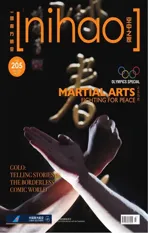錾金刻银
2016-05-17
錾金刻银

Contemporary Chinese writer Wang Zengqi wrote in Hou the Silversmith: Hou made her daughter a silver hairpin, and engraved this everlasting verse on it: “Outside Suzhou, Hanhan Temple is in sight. Its ringing bells reach my boat at midnight.” This is the last sentence of the whole novel, and I remember murmuring to myself “why did he engrave such a verse on the wedding gift to his daughter?”
To choose proper words to be engraved on gold accessories should always be treated as an important matter. This is because whatever you engrave, it had better mean something, it had better carry some weight. So if I were to engrave something, a gold bracelet or a gold hairpin, I prefer verses such as “Never lose yourself. Never forget who you are. May long life and prosperity be with you”, or “Less is more.”
I've always been a fan of accessory engravings, because it gives me a sense of real grace. Even the little gold lock I used to wear in my childhood with an engraving saying: “Long life!” made me feel I could not be more elegant. Some time ago a crowd was fascinated by the pair of wed-ding rings that belonged to Puyi, the last emperor of China. The pair of silver rings were engraved with some verses from the Book of Documents (aka Shangshu, oneof the Five Classics of ancient Chinese literature):“Vowed to the one and only. Be free from any temptation.” There are tons of verses like this in Classic of Poetry (aka Shijing, the oldest existing collection of Chinese poetry), such as “Though apart, thousands of sweet words we speak to each other shall remain in the heart, this affection shall be cherished forever.” There are more graceful ones, such as: “Nothing is bet-ter than when we play the harp together.” For a Romeo-and-Juliet type of love story, we have: “Cyan is the edge of thy dress, that my heart was moved by.” Actually, I fi gure “Spend the rest of my life holding hands with you.” is no worse than “Vowed to the one and only. Be free from any temptation.” For common folk, “Support each other, and help each other in dif fi culties” is a good option. My favourite is this one: “Bloom the peach fl owers, as bright as the fl aming fi re. Today I take thy hand and marry you, today I take thy heart and shelter you”, isn't it as good as the harpplaying one?
A more solemn choice is “Spring water clear, South Valley tranquil”. It was written to convey the harmony of brotherhood, but I guess it is also good for couples. It's all about harmony…

Kallen Guo
senior filmmaker, socialite and bestselling author, authored Don't Fall in Love with Zurich, the winner of The Best Foreign Language Novel.
郭丹
资深影视人、名媛、畅销书作家。代表作包括最佳外语小说奖获得作品《别爱苏黎世》等。
“姑苏城外寒山寺,夜半钟声到客船。”汪曾祺在《侯银匠》里说,侯银匠给女儿打的簪子上就刻着这句。这是全篇最后一句话,当时心头一震,不记得是不是有类似“侯银匠为何要在女儿的嫁妆上刻这句诗”这样的问题。前几年去的崭新的寒山寺,犹幸檐角的铃声还是老的。
金饰品上錾字总觉得好慎重,有种金玉良言一言九鼎的感觉,要是我刻字,无论是金锁金手链还是金簪子,我只会刻“莫失莫忘仙寿恒昌”,“不离不弃芳龄永继”,最多刻“任是无情也动人”,“淡极始知花更艳”……
我一向喜欢首饰刻字,有种认真的吉祥,哪怕我小时候金锁刻着“长命百岁”都觉得雅贵得不得了。前段时间被刷屏,惊艳于溥仪的两对婚戒。银素圈刻字“惟精惟一/允执厥中”。语出《尚书·大禹谟》。这样的语句在《诗经》里俯仰皆是——“心乎爱矣/遐不谓矣”是一,“中心藏之/何日忘之”也是一;再吉祥点就直接“琴瑟在御/莫不静好”;虐恋是“青青子衿/悠悠我心”。事实上“执子之手/与子偕老”并不比“惟精惟一/允执阙中”差吖。还更常见的,小老百姓家可以写“相濡以沫/相呴以湿”。而我最喜欢“桃之夭夭/灼灼其华/之子与归/宜其室家”,随便两两组合都很搭,和“琴瑟在御”一个级别,而且可以刻在金锁上当聘礼。
如果想再庄重些,“秩秩斯干/幽幽南山”,彼时说兄弟要和睦,此时说夫妻要和谐。也是同一个道理……
ENGRAVINGS
Text by Guo Dan Translation by Shi Yu Illustrations by Haolun Zhang

